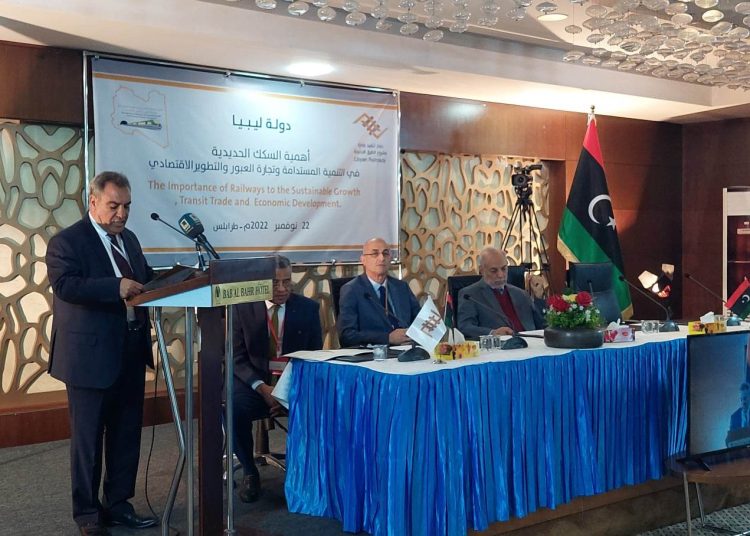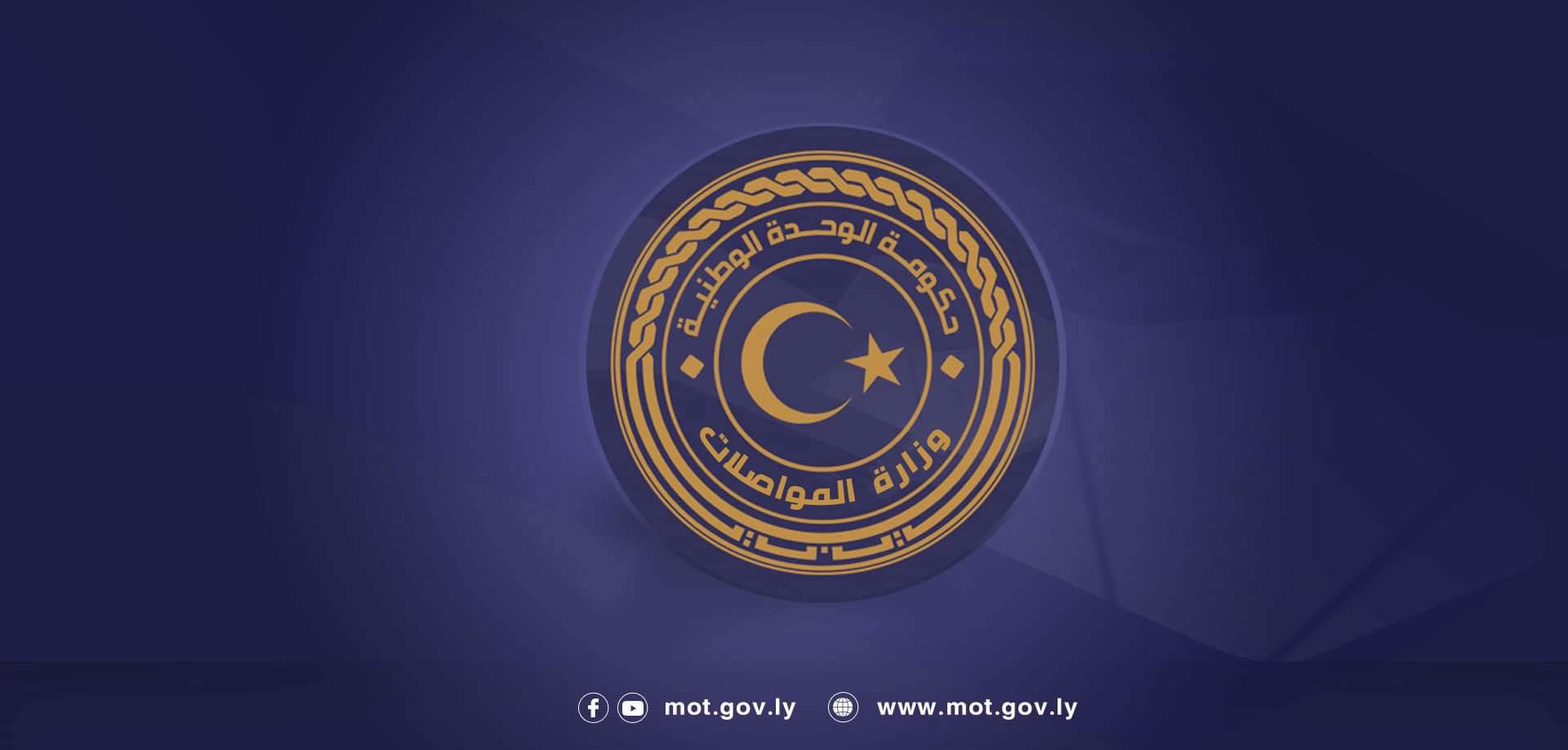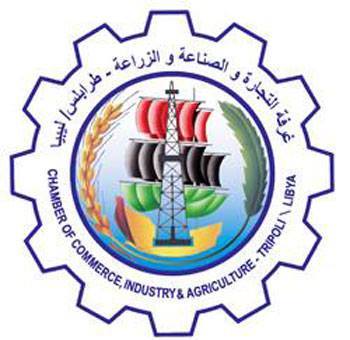At the workshop organised today in Tripoli by Libyan Railroads under the banner ‘‘The Importance of Railways to Sustainable Growth, Transit Trade and Economic Development’’ speakers stressed the importance of Libya completing its railways project.
The workshop, attended by about 150 people including interested parties from Austria, Hungary, Italy, Tunisia and Turkey, at least two former Transport Ministers, also covered the metro systems in Tripoli and Benghazi.
Nine presentations were made on the role of the railways in reducing transport risks, the role of the railway system in transit trade, the Railroads authority’s strategy in completing its contracted projects, investment opportunities in the Tripoli and Benghazi metro systems, investment through BOT in railways, renewable energies in railways, the role of the Libyan Iron and Steel Company (LISCO) in completing the railway system, the role of freight trains in transporting natural resources and the role local industrial production in supplying the construction of the railway project.
A strategic project
Former Transport Minister in the 1980s, Nuri Al-Madani, said Libya needs a railway system which is a strategic, sovereign decision. He said the decision to build it is political and not economic as it affects national security as well as transit trade.
For example, the project can help with regional development on the southern border and can help ebb the flow of illegal migration from sub-Saharan Africa. He pointed out that there are 400 million consumers in sub-Saharan Africa for Libya to benefit from economically. He went as far as to say that ‘‘Libya would own sub-Saharan Africa’’ economically if it constructed its railway system. ‘‘Without a railway system there can be no Libyan transit trade policy’’, he emphasised.
To this end, he said the Libyan Foreign Ministry and government should give the project a priority.
There is no political will to complete the railway system
Transport expert Fathi Sahery said there is no political will or coordination to complete Libya’s railway system and re-emphasised that there can be no Libyan sustainable or regional development without a comprehensive transport system.
Echoing earlier speakers that transit trade is a strategic move, he reminded the audience that oil will end soon, and that Libya needed to diversify its economy to other streams of revenues. transit trade is one such alternative stream, he added. A transit trade policy needs both political and financial investment, he stressed.
The case for transit trade
Sahery said there are 480 ports of various sizes in the Mediterranean and that around 40 percent of sub-Saharan trade passes through the Mediterranean. He said up to 40 percent of the cost of goods to some sub-Saharan states, especially the landlocked states, is made up from transport costs. This is a high ratio. Libya can deliver goods by train to its southern border at a much cheaper rate, he said.
The transport expert pointed out that roads to Chad and Niger of varying quality already exist and that the law to build better quality roads to the south exists. It needs implementation. These roads would facilitate the building of the railway system to the south.
Sahery said transit trade needs a comprehensive and joint-up transport system, including ports, roads, and rail.
However, he bemoaned the fact that there is no one entity coordinating Libya’s stattering transit trade policy.
Contracted parts of the railway need prioritisation
On Libya’s strategy going forward, it was agreed that Libya does not have the funds to complete the all the contracted sections of the railway system even in ten years. Therefore, there is a need to prioritise with the Tripoli section to the Tunisian border and Misrata probably getting priority in multiple phases.
Renewable’s role in railways
Guest speaker from Italian engineering and consulting company P&W Global, Luigi Simeone, made the case for exploiting renewables in operating Libya’s railway system. He reminded that railways are large users of energy and highlighted that photovoltaic and hydrogen renewables can be used to reduce operational costs, use of fuel, carbon emissions and protect the environment.
Libya’s geographic location can help its railways project to generate solar energy to at least operate administrative buildings, telecommunications, air conditioning and lighting.
The southern line can help exploit minerals and LISCO
The two speakers from the state Libyan Iron and Steel Company (LISCO)and the Libyan Mining Corporation both emphasised the importance of the completion of the southern line to supply LISCO with raw materials and to exploit Libya’s untapped raw materials in the greater Sebha area. They displayed a map of the proposed southern line showing how it was designed to run through the mineral sites in the greater Sebha area.
Libyan Rail Authority meets Chinese about restarting projects (libyaherald.com)
Egypt and Libya contemplating extending Egypt’s rail line to Benghazi (libyaherald.com)
Egypt to build rail line to Benghazi (libyaherald.com)
Russia considers resumption of work on Libyan railway (libyaherald.com)
Massive LD 50-billion development of Tobruk unveiled; railway to Sudan to be built (libyaherald.com)
Libya awaiting Chinese team for railway talks (libyaherald.com)
Railway will be resumed (libyaherald.com)
Russians in Tripoli for talks on Sirte-Benghazi railway project resumption (libyaherald.com)
Tripoli and Benghazi LRT systems progress (libyaherald.com)
Tripoli and Benghazi metro systems moving forward (libyaherald.com)












